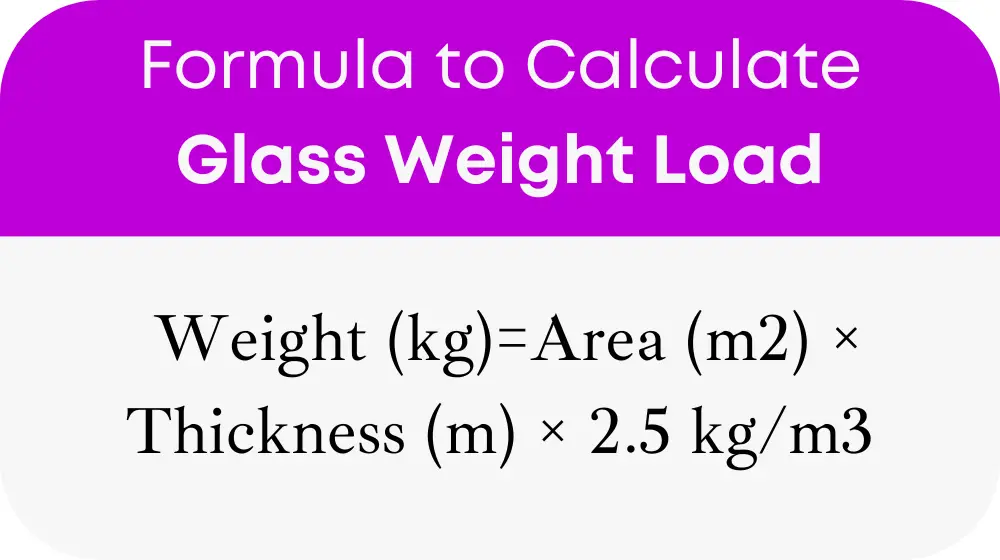The Glass Weight Load Calculator is designed to help you determine the weight of a glass panel required for various applications based on its area and thickness. Accurate weight calculations are vital, ensuring the structural components like frames and supports are suitable for the glass’s weight, which is essential for safety and performance.
Benefits of Using the Calculator:
- Efficiency: Quickly calculates the weight without manual errors.
- Accuracy: Ensures that the weight is computed precisely to prevent installation issues.
- Safety: Helps in choosing the right glass that can be safely supported by existing structures.
Understanding the Formula of Glass Weight Load Calculator
Here’s a closer look at the formula used in this calculator:

Components Explained:
- Weight (kg): The final weight of the glass piece in kilograms.
- Area (m²): The surface area of the glass, calculated by multiplying its length by width in meters.
- Thickness (m): The thickness of the glass in meters.
- 2.5 kg/m³: The density of typical glass, approximately 2.5 kilograms per cubic meter.
Practical Application: A Table of Common Measurements
To simplify the process for frequent or typical measurements, below is a table that lists common glass sizes and their estimated weights, allowing quick references without recalculations.
| Length x Width (m) | Thickness (mm) | Weight (kg) |
|---|---|---|
| 1.0 x 2.0 | 10 | 50 |
| 1.0 x 2.0 | 5 | 25 |
| 0.5 x 1.0 | 10 | 12.5 |
| 0.5 x 1.0 | 5 | 6.25 |
Step-by-Step Example of Glass Weight Load Calculator
Scenario: Calculate the weight of a glass pane for a standard window measuring 1.2 meters by 2.4 meters with a thickness of 10mm.
Calculations:
- Area = 1.2 m x 2.4 m = 2.88 m²
- Thickness = 10 mm = 0.01 m
- Weight = 2.88 m² x 0.01 m x 2.5 kg/m³ = 72 kg
The glass pane weighs 72 kilograms, indicating the type of support and frame needed for safe installation.
Most Common FAQs
The calculator is capable of handling standard sizes used in residential and commercial projects. For exceptionally large or thick glass, consult with a structural engineer.
Use a caliper to measure the glass thickness accurately. If unavailable, refer to the specifications provided by the glass manufacturer.
Typically, yes, for standard window glass, but it can vary. Adjust the density value in the calculator if you’re using a type of glass with a different density, like tempered or security glass.